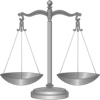Apple wants to go to trial to defend itself against U.S. government allegations that it conspired with publishers to raise prices of electronic books, reports “Reuters” (http://macte.ch/RaANk).
“Our basic view is that we would like the case to be decided on the merits,” Apple lawyer, Daniel Floyd, told U.S. District Judge Denise Cote. “We believe that this is not an appropriate case against us and we would like to validate that.”
In response to the U.S. Department of Justice’s antitrust lawsuit against Apple and several book publishers for collaborating on ebook pricing, Apple says it’s actually been working to break Amazon’s control over market.
In a statement (http://macte.ch/Y5Dz0) to AllThingsD, Apple spokesman Tom Neunayr had this to say: “The DOJ’s accusation of collusion against Apple is simply not true. The launch of the iBookstore in 2010 fostered innovation and competition, breaking Amazon’s monopolistic grip on the publishing industry. Since then customers have benefited from eBooks that are more interactive and engaging. Just as we’ve allowed developers to set prices on the App Store, publishers set prices on the iBookstore.”
The Department of Justice filed an antitrust lawsuit against Apple, Hachette SA, HarperCollins, Macmillan, Penguin and Simon & Schuster in New York district court this week, claiming collusion over eBook pricing. Apple and Macmillan, which have refused to engage in settlement talks with the Justice Department, deny they colluded to raise prices for digital books.
The brouhaha centers on Apple’s move to change the way that publishers charged for e-books as it prepared to introduce its first iPad in 2010. Traditionally, publishers sold books to retailers for roughly half of the recommended cover price. Under that “wholesale model,” booksellers were then free to offer those books to customers for less than the cover price if they wished.
Apple suggested moving to an “agency model,” under which the publishers would set the price of the book and Apple would take a 30% cut. However, Apple also insisted that publishers couldn’t let rival retailers sell the same book at a lower price.



